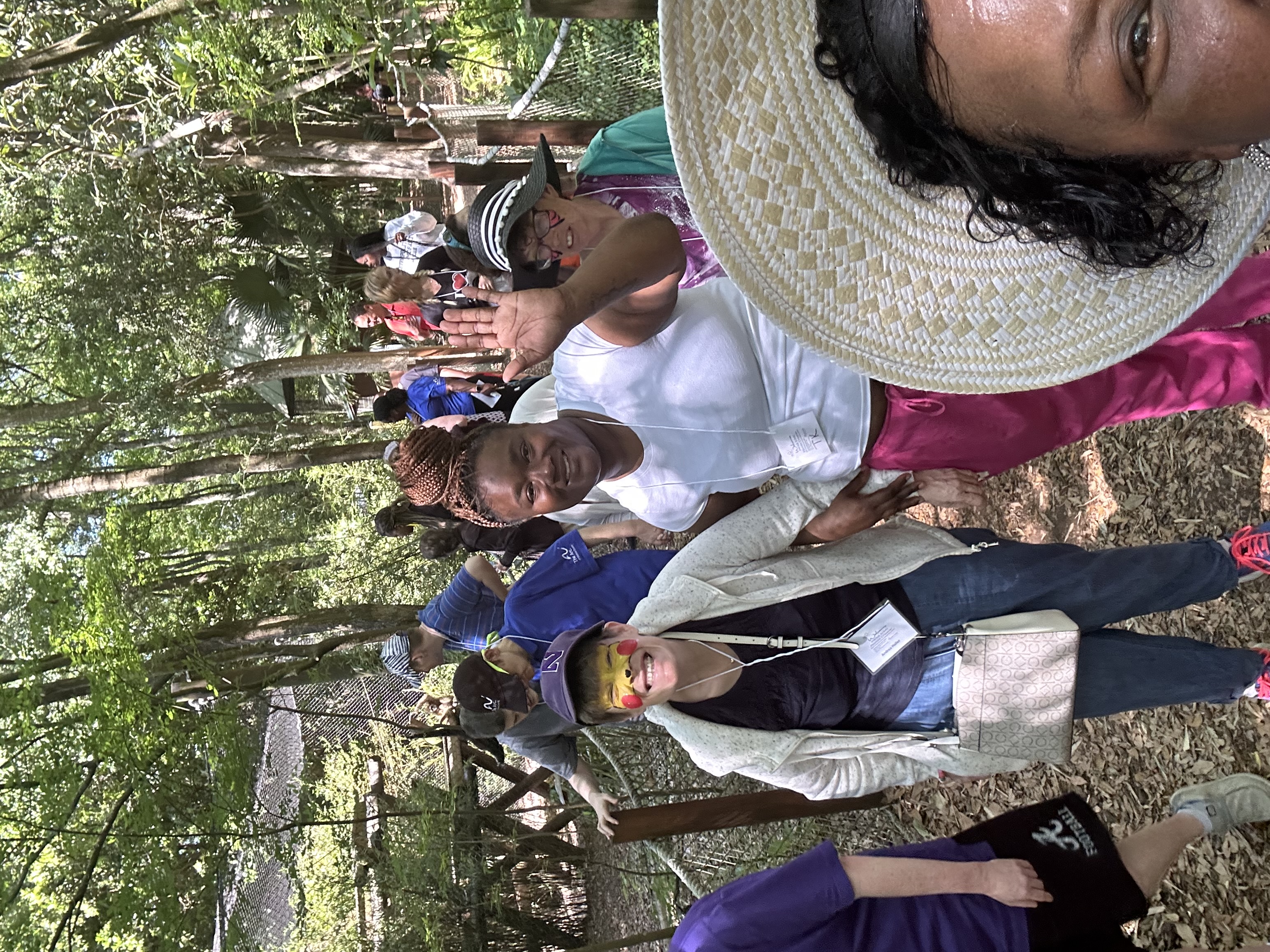Prader-Willi Syndrome (PWS) Services at The Arc of Alachua County
Prader-Willi Syndrome (PWS) is a non-inherited genetic disorder that was first identified in 1956 by Swiss physicians Prader, Labhart, and Willi. PWS affects one in 15,000 to 25,000 births, and is primarily characterized by an insatiable desire to eat and mild intellectual disabilities.
The challenges of PWS begin at birth and continue for a lifetime. For individuals with PWS, compulsive eating and obsession with food usually begins around the age of eight. People with PWS often develop behavior challenges including severe tantruming and eloping and experience compulsive behaviors and serious anxiety resulting in interpersonal and social problems. Recent medical advances have begun to show hope for the compulsion to eat and debilitating anxiety that people with PWS experience.

Program
Since 1988, The Arc of Alachua County has successfully served people with PWS. Improvements in the lives of these individuals have been striking. Our 5 step program has shown that we can manage weight-loss in a much less restrictive environment than previously thought or recommended. Improvements in the quality of life for people with PWS have been remarkable and have included the amelioration of many serious health issues, including: Type II diabetes, sleep apnea and congestive heart conditions.
5 Steps to Success
- Weight Management
- Exercise
- Behavior Analysis
- Training and Monitoring
- A Lifetime of Supports
Physicians and medical professionals with specific expertise in PWS, prescribe and monitor the individual’s nutritional intake, taking into account factors such as daily caloric allotment, as well as their intake of sugar, artificial sweeteners, carbohydrates, etc. Individuals are allowed to make choices about what they eat based upon these recommendations. Nutritional intake is tracked on a day-to-day basis. The goal is to have the individual lose 1 - 2 lbs. each week until their target weight range is achieved and maintained across relevant settings.
Each individual’s physician or medical professional prescribes a personalized exercise program divided into ‘easy’ and ‘hard’ days with the goal of safely burning calories while improving overall health. Over time, criteria are monitored and modified by physicians based on the progress and needs of the individual. Social support and other incentives are provided to increase the individual’s motivation to participate.
We use an evidence-based science called ‘Applied Behavior Analysis’ (ABA) to reduce challenging behaviors and increase appropriate replacement behaviors. Once we establish an increase in appropriate behavior(s), we then work on generalization and maintenance of skills to allow the person to thrive across relevant environments.
Staff training begins with an intensive two week pre-service training. Every other month we retrain staff on the general treatment procedures. We test bimonthly for competency of individualized program specifics. Staff is given financial incentives based on their testing performance.
Intensive admissions support individuals with critical needs, including multiple health and behavioral issues of concern. Advancements in medical research and the behavioral sciences are used to improve our services to meet the needs of people with PWS over a lifetime. The goal is to improve our services and supports through continuous learning, the application of evidence-based research, and participation in PWS advocacy.
If you desire more information about PWS and The PWS Program at The Arc of Alachua County, please contact:
Mark A. Swain
President/CEO
The Arc of Alachua County
352-334-4060
mswain@arcalachua.org

